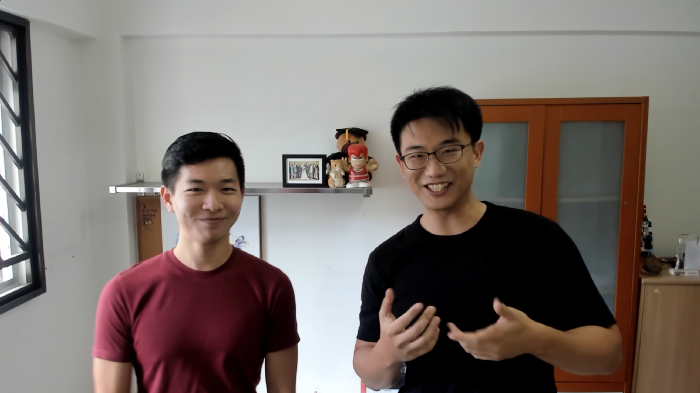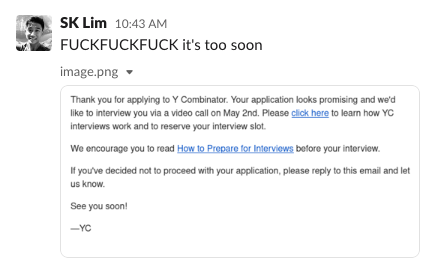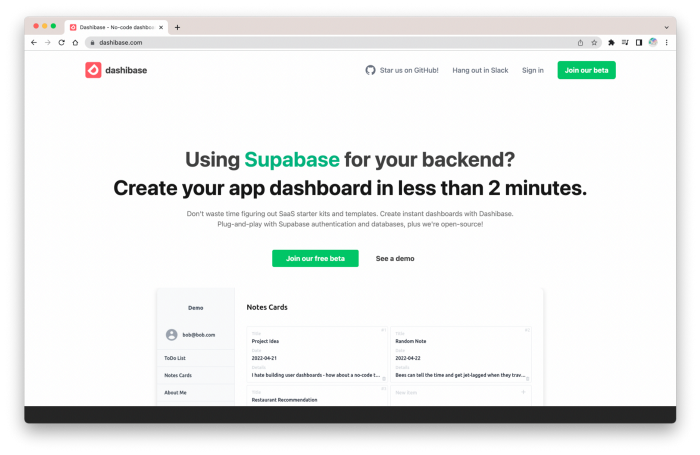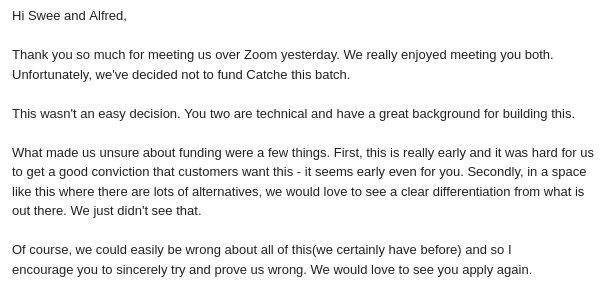Company/May 6, 2022
Our Short Y Combinator Experience

Alfred Lua
Co-founder

Swee Kiat and I recently applied to Y Combinator (YC), hoping to get the funding and support to accelerate our startup’s growth. We made it to the interview but did not get into the program.
Since we benefited from our friends’ YC stories along the way, we wanted to share our story to help other founders. Think of this as the honest advice we would share with our friends over a cup of coffee.
Here’s our tragically brief experience, which ended with the most expensive 10 minutes of our lives so far.
Go all in
Before you even apply to YC, you want to be sure you are committed to your startup. The application has several questions about your level of commitment.
Why would anyone give you $500,000 if you are not committed?
Swee Kiat and I are going all in. He left his cushy job at Google in January, and I have resigned from ReferralCandy. We are working on our startup full-time, despite not having an income. We even turned down consulting gigs—well, until we really need some money to keep the lights on.
Cut the bullshit
Applying to YC forces you to think through your business with as much clarity as possible.
- What are you working on?
- How do you know people want this?
- Why is it better than other solutions available?
- How are you going to get customers?
- What is each founder responsible for?
Sounds obvious? You’d be surprised. Too many people — especially developers — dive in to build a product without ever thinking about how it would become a company. This is a mistake. YC wants to fund startups that will really take off, not side projects.
On the other hand, don’t use fancy terms to make your application sound nice. YC has worked with so many companies that they can easily spot any fluff. Also, they have more than 10,000 applications to go through, so spare a thought for them. They just want a clear picture of your business.
We applied at the end of March with one of our favorite ideas back then — Catche, a personal search engine for your bookmarks. We envisioned it growing to become Google’s nemesis — no more clickbait or SEO spam. We had posted the idea on several subreddits and gotten 30+ people to sign up for beta access. This is the application that got us the interview.
Be prepared, not rehearsed
On the morning of May 2, Friday, we received an invitation to interview with YC the following Monday. That gave us a grand total of 4 days to prepare. And we had pivoted a week ago. What perfect timing.

We just started work on Dashibase, a no-code tool for building app frontends. Within a week of our launch, we got 3 strangers to pay us $29 each without even getting to try the product. That’s a little bit of traction, but was that enough?
(Spoiler: no)

Before the interview, Swee Kiat and I went through some (a ton of) questions that we think might come up. We gathered these questions from our YC-alumni friends, as well as several articles and forum posts.
Be prepared, not rehearsed. There’s a sweet spot between “winging it” and “scripting it”, which actually lies closer to “winging it” than you might expect. We’d suggest going over the questions twice so you’re comfortable but not robotic.
The interview lasted only 10 minutes. The most expensive 10 minutes of our lives so far went by in a flash.
- What are you working on?
- Who are your first customers?
- How do your users use your product?
- How are you different from Retool or Forest Admin?
- What is the bigger vision?
There were a few follow-up questions to our answers too — all in all, about 10 or so questions. For those keeping count, that’s 1 Q&A per minute. YMMV though. Apparently, we had gotten the more patient partners, who waited for us to finish our answer before asking another question. We heard some partners can be exceptionally brutal.
Some quickfire tips for your interview:
- Expect to wait. Given the tight schedule, the interviews are most likely going to overrun. We joined the call 10 minutes ahead of time and the interview started 10 minutes late. Also, this means you should definitely go to the toilet before all that.
- Prepare a demo but be ready to explain your product without it. Our attempt to show a demo was met with a swift “No we don’t have the time.”
- Say you don’t know when you don’t know.
- Assume you will be interrupted. Stuff 80% of your answer into your first sentence. Then elaborate. Each additional sentence has a lower chance of survival.
- If your interviewers are patient and nice, make extra effort not to ramble. Interrupt yourself so they don’t have to.
Deal with it
A day later, we received our rejection via a personal email from one of our interviewers. We had not gotten enough traction, and we didn’t have a clear differentiation in a crowded space. He admitted they could be wrong and encouraged us to prove them wrong.

I can’t say we aren’t disappointed by the result. But we have taken it in our stride and are excited to move ahead (and yes, prove them wrong). Some plans would need to change but it isn’t the end of the world — or our startup!

Our gratitude
While our experience with YC has been short, we are grateful to a few groups of people:
- The Supabase team for building Supabase. We couldn’t have built Dashibase in five days without it. The team, especially Paul Copplestone and Ant Wilson, has also been very supportive, sharing our tweets, upvoting Dashibase on Product Hunt, answering our questions, and more.
- Our YC interviewers for taking the time to interview us and sharing their feedback.
- Our friends for sharing their YC experiences with us and helping us refine our thoughts.
- Most importantly, the people who signed up and even paid for Dashibase. We will work hard to make something you want.
What’s next for Dashibase
What we have planned for Dashibase doesn’t change because we didn’t get into YC. We still want to help people build apps faster.
Just last week, we made Dashibase free so that more people can try Dashibase and work with us to make it better. If you have not tried Dashibase, now is a good time!
Also, we have put up our short-term roadmap on GitHub. Let us know in Discord if you have any feature requests or feedback.

If you are curious to learn more about the YC experience, several startups funded by YC have written about their experience: